As we were relaunching our media a year and a half ago, we set up as one of important tasks not only becoming an online platform for important discussions about the town and the region but introduce concerned people to one another in an online format. At least bring them together, even without acquainting them with one another, by uniting them all with a single topic that requires discussing, actualizing and finding ways of development about it.
This is how the format of town discussions appeared under the title Varosh Talks. You can interpret and translate it in different ways – the town speaks up, talks over the town, the town talks, conversations in the downtown (i.e. varosh, both in Hungarian and the local dialect of Ukrainian). For us the translation is of no great importance in this case, the main thing is not to keep silent and to be heard.
In this article, we are going to tell you why we are so proud of this special project and what we have managed to accomplish so far. And certainly, we will be talking a little bit about the plans and discuss our would-be discussions with you in the comments. And one more thing: you should read it and look through, at least because the content features a few videos published for the first time.
Let’s get started!
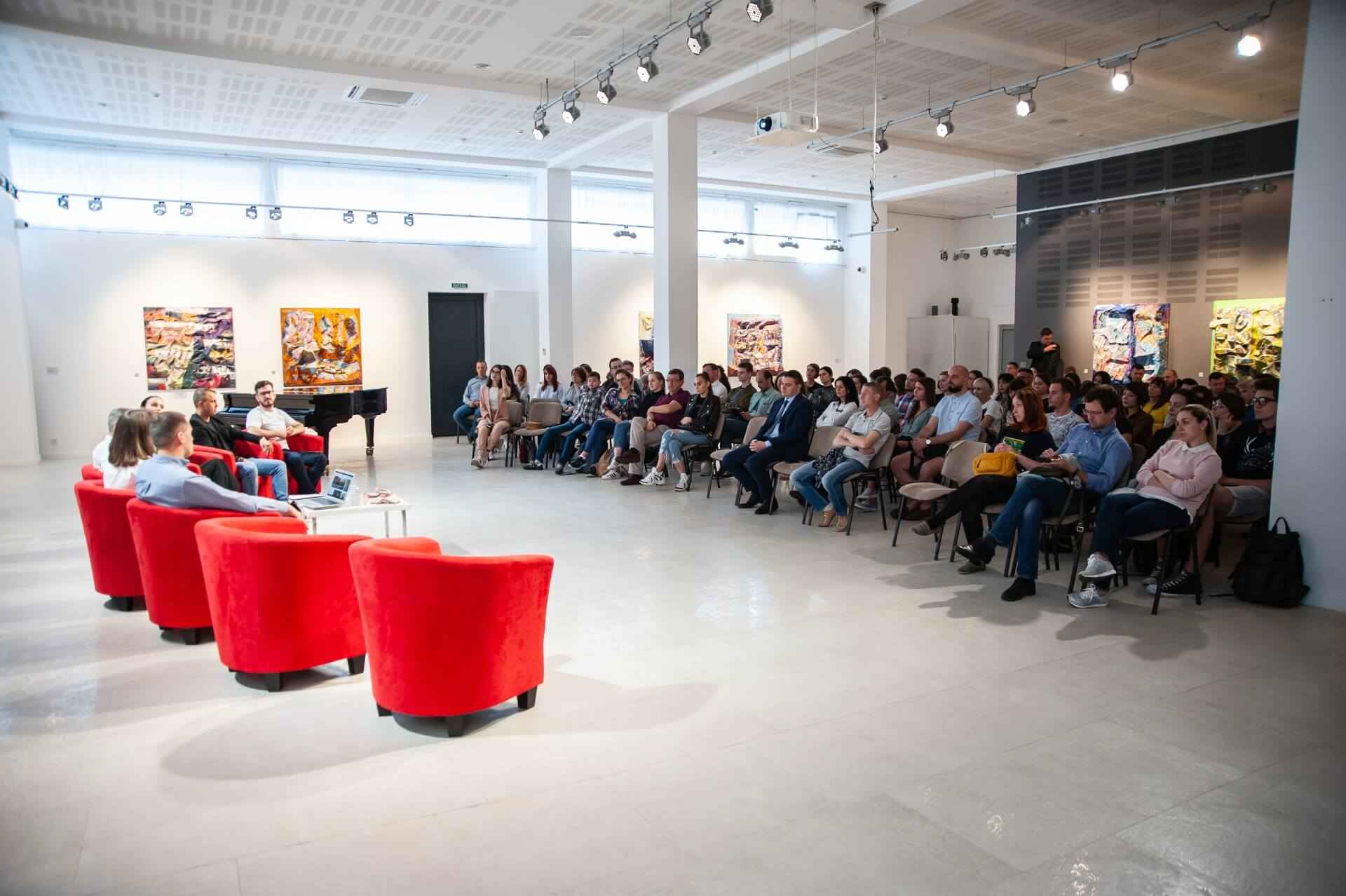
Varosh Talks No1. Presenting the updated Varosh.
At our first event, back in May 2019, we presented the updated version of the media and familiarized the town residents with the team creating it. It seems that there had never been a case when a mass-media had a conversation with readers so close. As a part of the presentation, on top of everything else, we spoke on the role of the local media in solidifying the public trust and promoting major breakthroughs in communities. We know for sure that it was a valuable experience both for us and our readers.
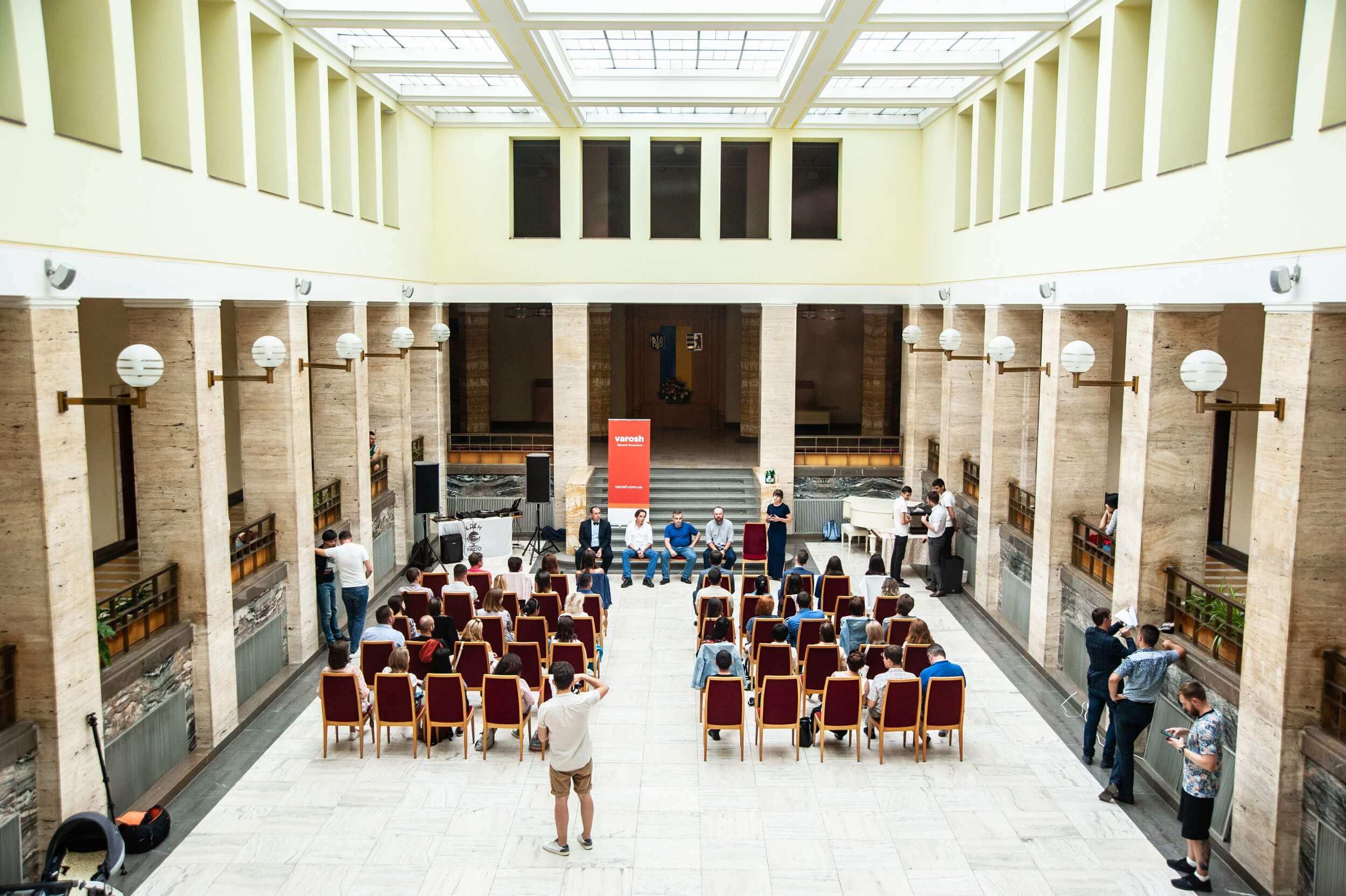
Varosh Talks No2: the multiculturalism of Transcarpathia – is it a weak point or a strong one?
Why have a discussion on multiculturalism? For we had not expected to get such a keen interest to our special project. The latter, under the name “Roots: the multinational Transcarpathia in the stories by uncommon people” aroused a great number of discussions both online and offline, bringing up stories of origin, blood merging and, on the whole, who we are then and where we come from.
Eventually we created the second part of the project “Roots”, featuring no less exciting stories, as well as hardly the most aesthetical cultural and educative project on the historical attire of Transcarpathian females, typical of various districts of the region over a hundred years ago. If you somehow missed it, here it is, sincerely recommended by us: The Roots – historical clothing in Transcarpathia in images of modern women
Volodymyr Hutsul, a historian
I am very glad to see culture and civilization coming finally to Uzhhorod, because the tradition of such meetings has been flourishing in, say, Lviv or Kyiv, for ten years, as far as I can remember. And, at the same time, this project has been needed for quite a long time. The concept is to talk of things seeming common but extremely complicated, and it is worth of every kind of encouragement, praising and passion.
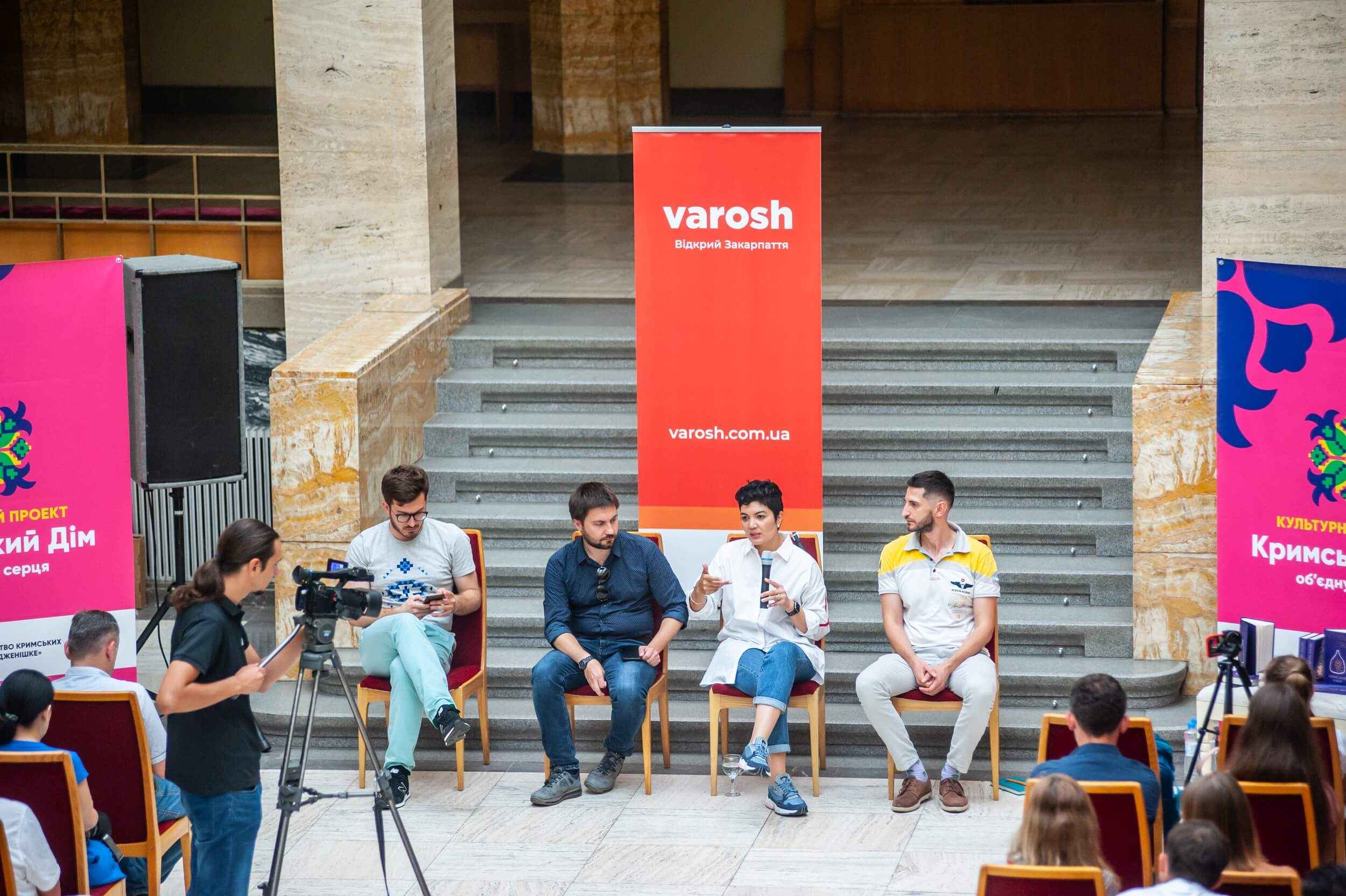
Varosh Talks No3: The Crimea and Transcarpathia – vision of the future
When our friends from the cultural platform of The Crimean House turned to us, offering to hold a mutual discussion on the topic of the Crimea in Transcarpathia, we didn’t spare a minute in considering and agreed at once. By the way, such discussions took place in several Ukrainian cities. Anyway, only by hosting the event, did we realize how important it was, and why it is so essential to hear one another and no to be guided by stereotypes and clichés from the news on TV channels.
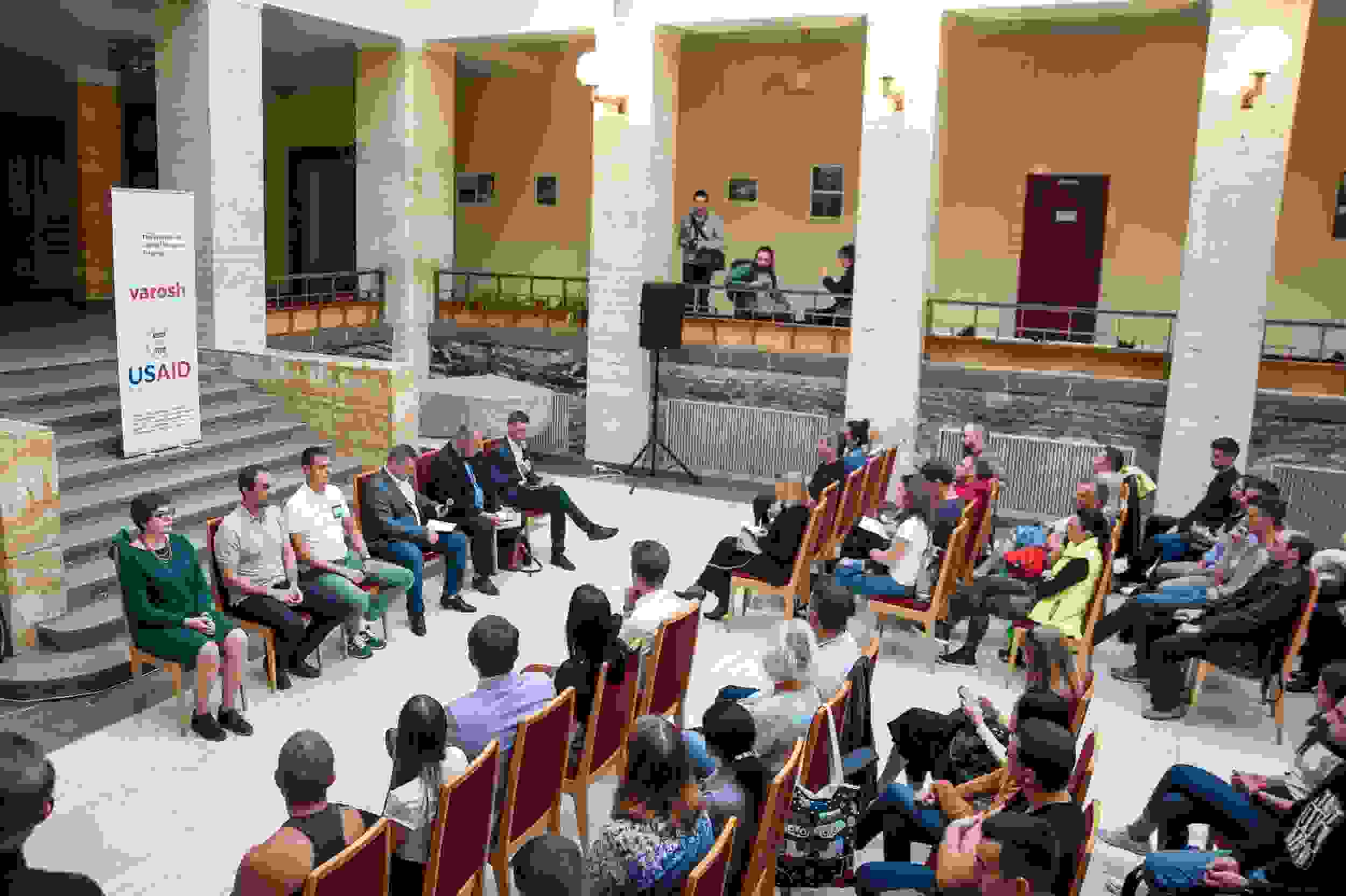
Varosh Talks No4: Is Transcarpathia really a touristic region?
Is Transcarpathia really a touristic region? Following Descartes’ logics, i.e. going through doubts as a tool for comprehension, we raise the issue in order to provoke the widest possible discussion, which, along with this, should have led to definite ideas and strategies concerning what needs to be done to make Transcarpathia a truly touristic region, and make tourism become economics and a starting point for development in the whole region.
The discussion speakers: Fedir Shandor, Oleksandr Koval, Denis Man, Maxim Adamenko and Inna Pryhara.
Here is a video from the event:
The discussion provoked a whole range of comments, both online and offline. Here are a few of them:
- How can we attract foreign tourists to Transcarpathia? A column by Bandy Sholtes.
- How can we attract tourists to Transcarpathia? Part I. A column by Bandy Sholtes.
- The Yavornyk Hospice or Transcarpathia tourism, light version. A column by Vladyslav Tovtyn.
- Transcarpathian tourism during the coronavirus pandemic: survive against all odds and become stronger
- When is there going to be tourism in Transcarpathia? Perhaps never!
- Transcarpathia is open for the wide world. A column by Petro Midianka.
Inna Pruhara, a female cheese monger and entrepreneur:
To my mind, Varosh Talks is a sincere platform for fierce disputing. As for me, Transcarpathia has long needed an open platform for public communication, available for visiting to everyone wishing to attend, not only experts or state officers.
Each topic raised at Varosh Talks was precisely formulated and actual. I would dearly love to attend each and every of the events, even though the topic may not relate with my activity, simply as a listener. However, due to my job and the 120-km-long trip to Uzhhorod, I have not always been able to do it. I think that even before the pandemic actually started, many needed online translations and meetings.
The main value of such events is creating some space for intellectual and professional communication throughout the region and, at the same time – a sincere one, for everyone being able to speak up his mind and talk to opponents and like-minded.
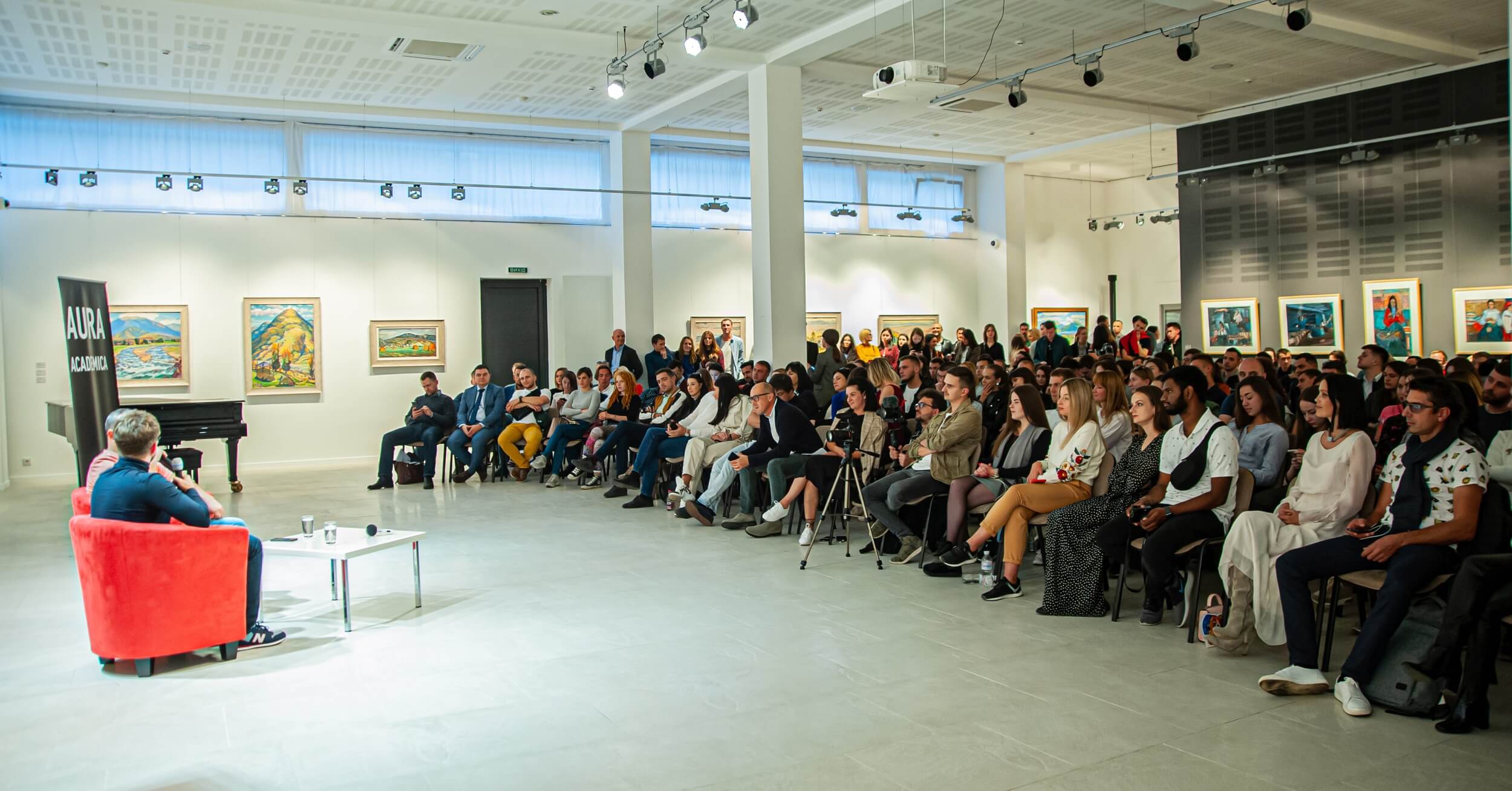
Varosh Talks No 5: Why I’m not leaving Uzhhorod yet
The most massive issue of Varosh talks and probably the most extensive discussion within Uzhhorod, too. The event was attended by 360 listeners – entrepreneurs, students, executives, the creative class.
We invited to tell their stories Edgar Peti and Myloslav Bahanych, both restaurant keepers, Natalia Yantso, an event organizer, Robert Traxler, a developer; Melita Reshko, a founder in a tourist agency, Valentyn Shtefanio, a confectioner, and Yuriy Kochut, a jeweler.
Oleksandr Koval, a tourism expert, a lecturer of the Uzhhorod National University
What is the value in Varosh Talks? First of all, it is not about speaking out the actual outstanding issues bit find solutions based on real opportunities and the situation. Secondly, it is an opportunity to send a message, one’s point of view and check its actuality during the discussion. Thirdly, the discussion format envisages outspokenness for everyone admitted to put up a question directly to the speaker or an expert, irrespective of his position.
This format is very important and needed, for it means another step in development of the civil society and reinforcement of responsibility, both from the civil servants and from business and public representatives. As for the local residents, they get an opportunity to hear answers to issues sometimes not very comfortable.
It would be very good to hold such formats at the level of communities. Not only to shape up an expert environment but to find solutions on most important outstanding issues. For if we talk here in Uzhhorod on the problem of the “colored honey”, the local folks would never understand what the problem is. And meanwhile it’s a crime and the local people get cheated by some businessmen, and certainly, a negative influence on Transcarpathia reputation.
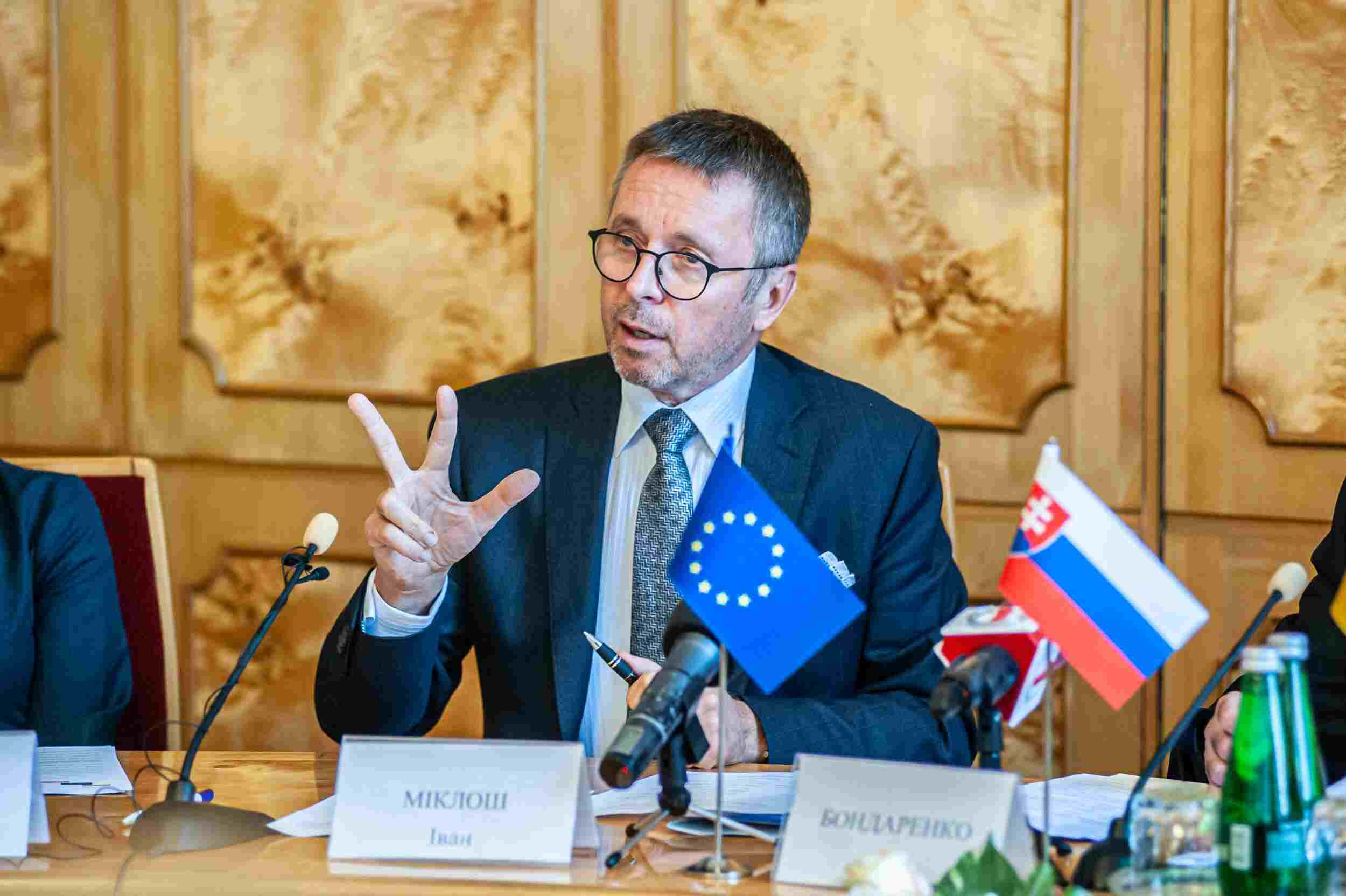
Varosh Talks No6: Ivan Miklosh on reforms in Ukraine
The most official edition of Varosh Talks but no less important and significant. At the event, we spoke to the Head of the Strategic Group of Councilors at the Cabinet of Ministers of Ukraine, an ex-Minister of Finance of Slovakia, Ivan Miklosh, on reforms in Ukraine – why they are being implemented so hard and how to speed them up.
Our extended article from the event: Ivan Miklosh in Uzhhorod: Ukraine may follow either Poland’s example or that of Belorussia
Mykhailo Dankanych, Director of the “Transcarpathia” Regional Development Agency:
To my mind, Varosh Talks is a modern discussion format, worthy of holding in every city of Ukraine. In the communication world, where messages are becoming shorter, thoughts get less deep, and perception of the world around for a common “information consumer” – all the shallower, holding a discussion among experts in various fields in a public space is extremely important. In the second half of the 20th century, scientists were the heroes of the time along with rock stars. Nowadays, surprisingly enough, it seems as if the larger the informational streams become, the authority of science, just like that of “the voice of the common sense” only diminish. Therefore, I am definitely all for any public discussion among experts and professionals, as a lighthouse to guide our society.
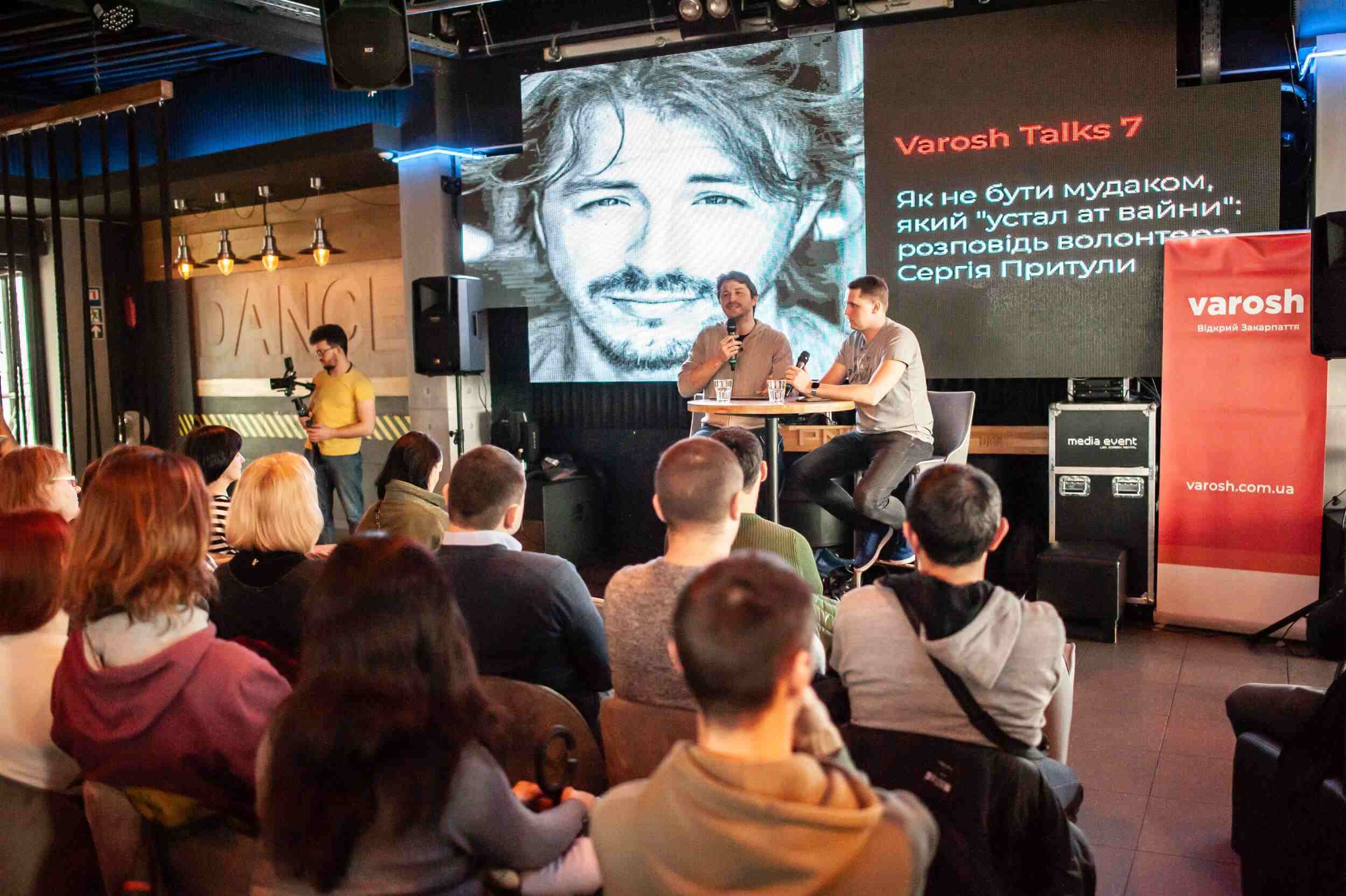
Varosh Talks No7: Serhiy Prytula, a volunteer – a first-person story
Serhiy Prytula, a showman stood before the audience for 2 hours. First of all, as a volunteer supporting the Ukrainian Army and as a concerned Ukrainian.
Our full version of the content from the event: Serhiy Prytula related in Uzhhorod the best strategy as not to become a moron “tired of this war” (pronounced with a Russian accent)
Maxim Adamenko, an expert in tourism:
People always discuss something – as they meet in a bar, in a bus, on their way to work, in the kitchen at home or at a birthday party. There is always some piece of news or events that you want to share or talk over. However, in order not to have just a small talk but a productive dialogue with results, topical meetings are to be created. People talk. The whole town talks. The varosh talks.
In the last few years I simply have no time for small talks. So Varosh Talks has become for me that very effective format of meetings and productive dialogs. It’s an opportunity to bring my vision or proposals for the people concerned or competent enough to solve the issues. It’s an opportunity to get answers to my questions from the authorities. And an opportunity to present my projects and find followers for the implementation.
The Varosh Talks team is made up of specialists, and they invite experts, in accordance with the meeting subject. And once you are invited, it means you have achieved something in your field of activity.
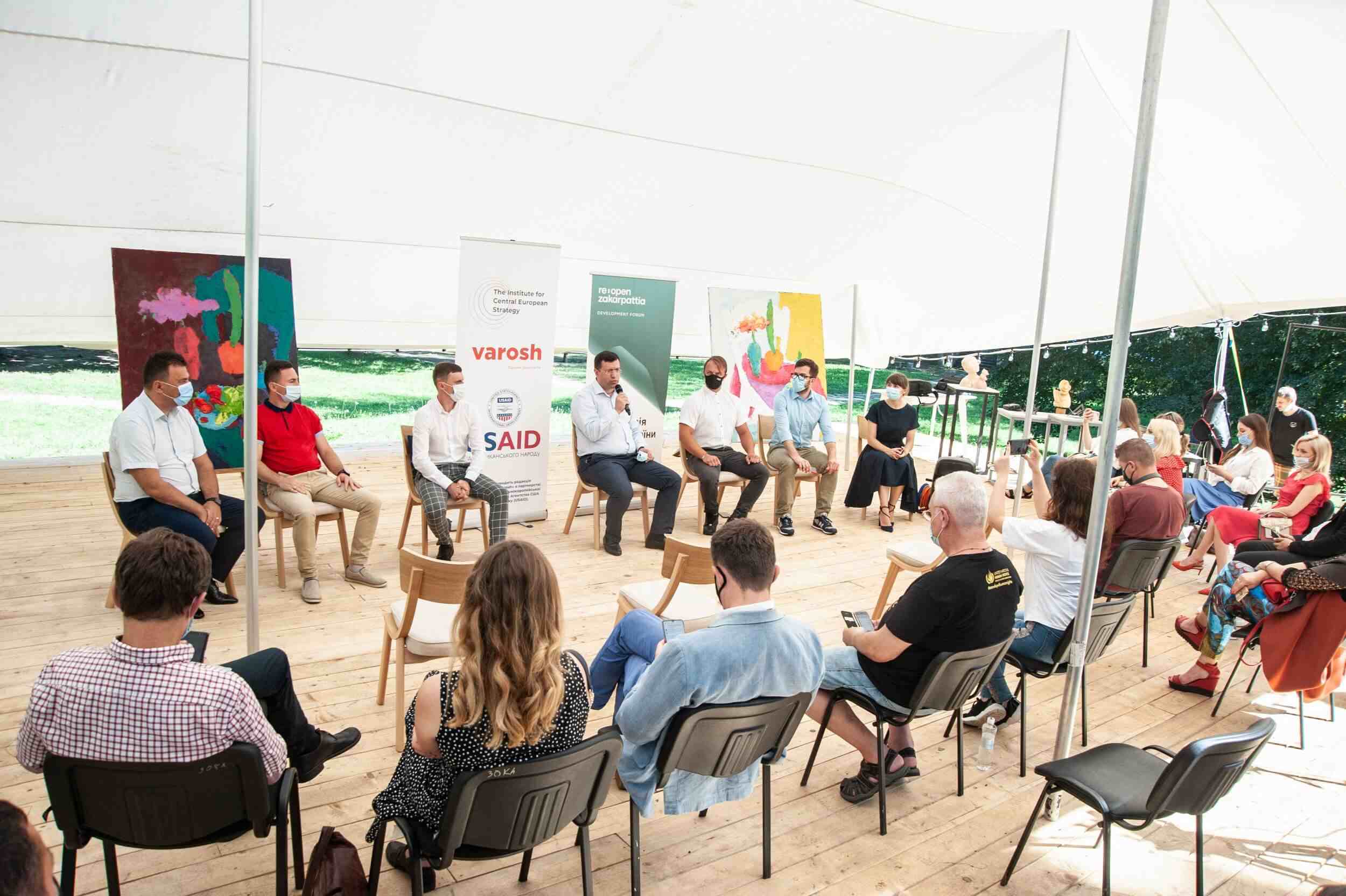
Varosh Talks No 8. Presenting the project Re:Open Zakarpattia and a discussion on the regional development
Each of the previous discussion became another brick in the greater project Re:Open Zakarpattia, and we devoted this event to its presentation.
All the information on the forum, its concept and goals, ideas and solutions to give a new impulse to development of Transcarpathia read in our article.
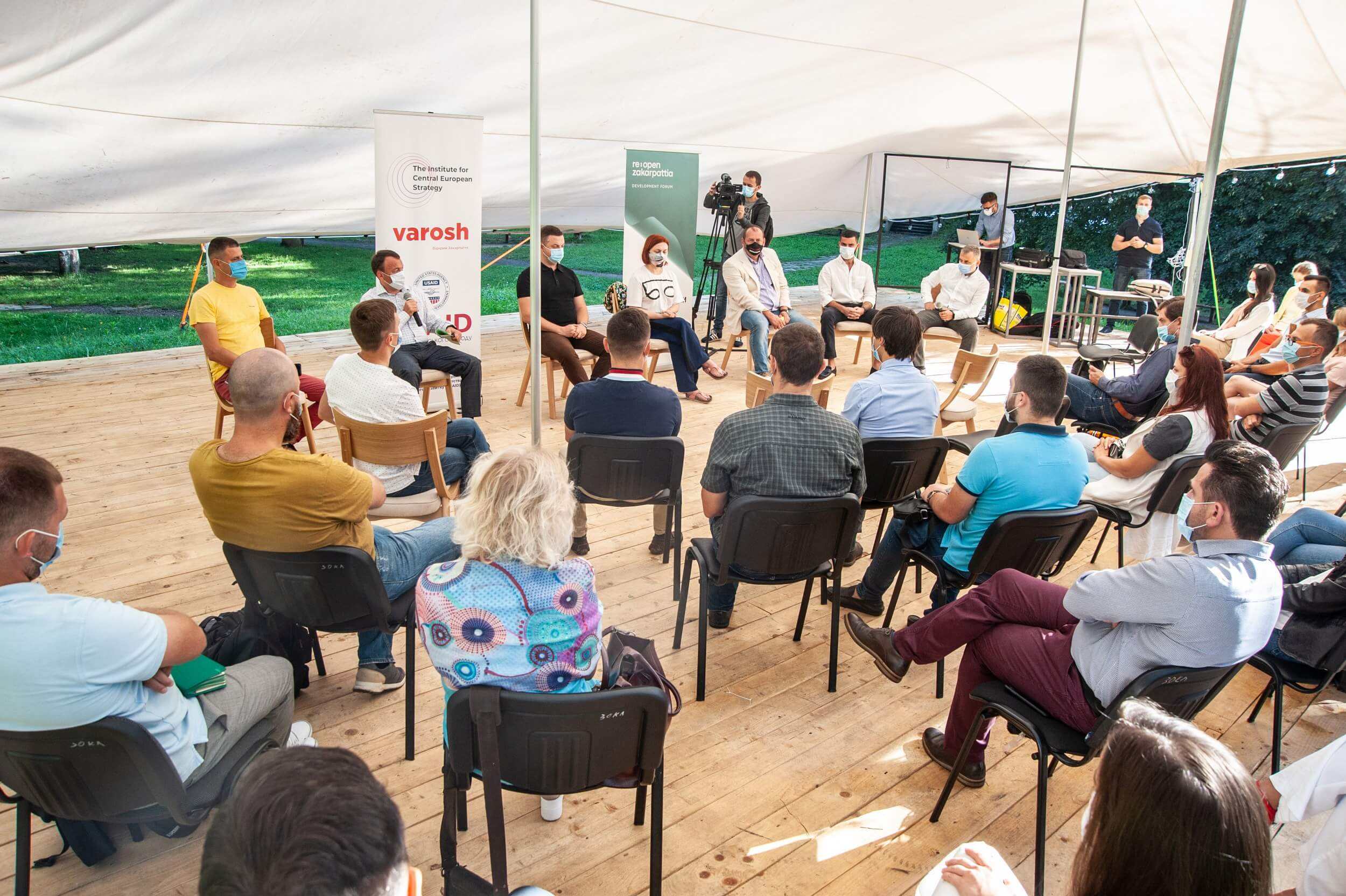
Varosh Talks No9: Ways and means to promote Transcarpathia and its attractions
Why is it so: whenever we speak of promoting Transcarpathia, it is worth thinking not only about tourism and festivals. And once talking of the festivals, then meaning not only eating, drinking and dancing. Why it is important to develop culture, present art, give a non-compromised level of quality and an intellectual part. We discussed all of these during Varosh Talks, issue No9.
The series of open discussions Varosh talks is held in cooperation with the private association “Institute of Central European Strategy” and is carried out with the support of the USA Agency on International Development (USAID)
Text by: Rosana Tuzhanska, the Varosh
Photo by: Karl Smutko
Video by: Anton Ryzhykh, Yuriy Gotra
The present content has been presented by the public foundation “Institute of Central European Strategy” supported by the USA Agency on international development (USAID). The details of the content is a sole responsibility of the above Institute and may not necessarily represent USAID’s point of view or that of the USA Government. Reproduction and using of any part of this content in any format, including the graphical or electronic one, copying or using in any other way without a relevant link to the original source is prohibited.
This project is carried out with the support of the USA Agency on international development (USAID), 2013-2020. Varosh is an online journal about Transcarpathia. Reprinting and using of the content published at varosh.com.ua is allowed under the condition of an open hyperlink within the first or second passage.





